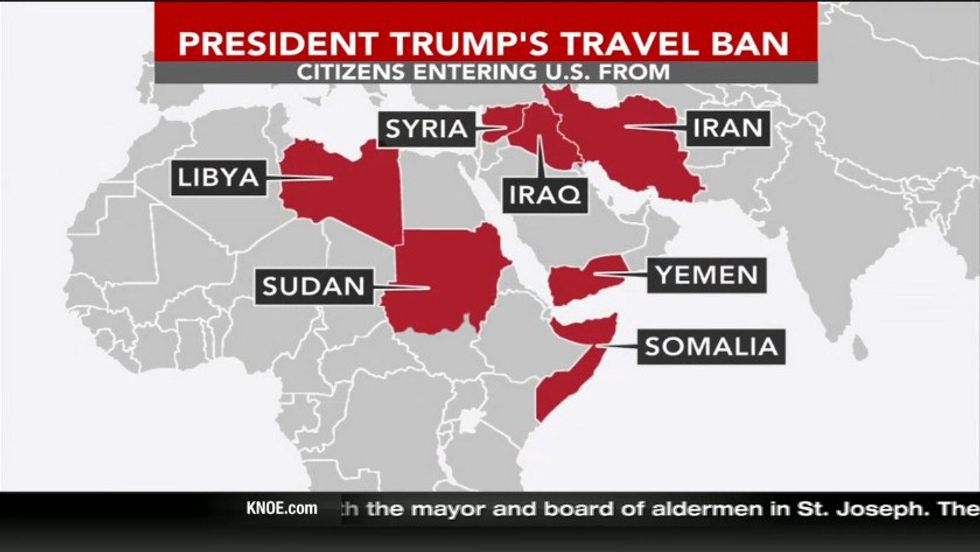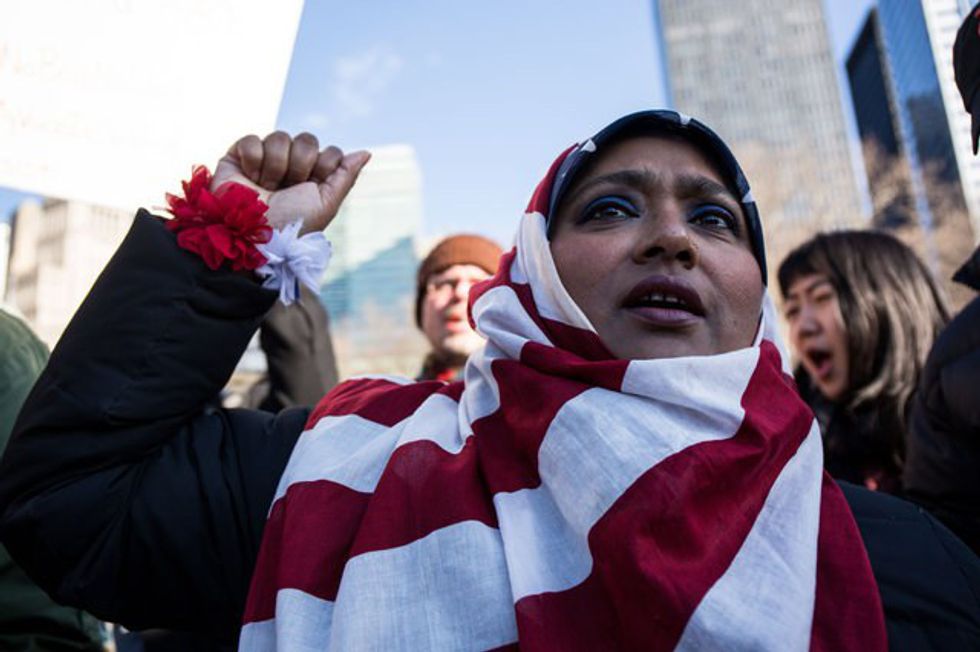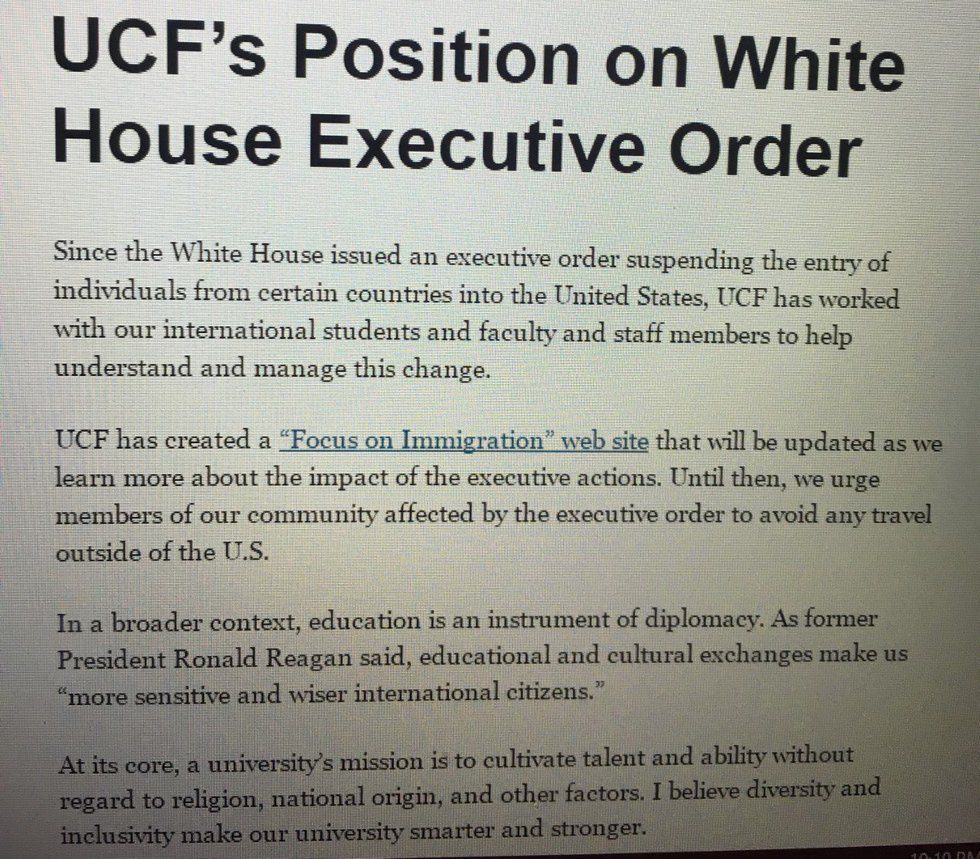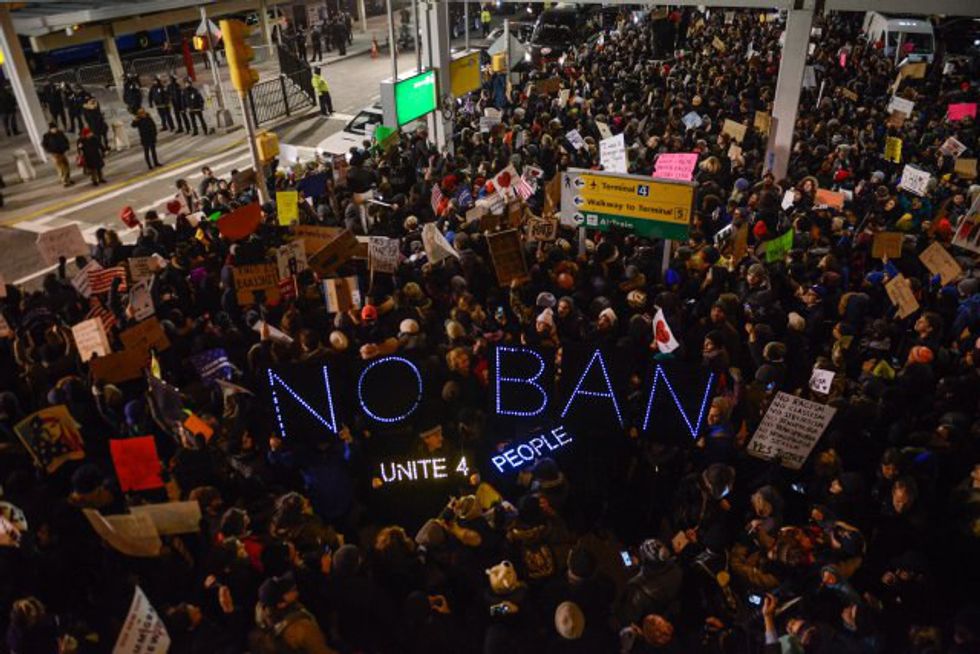Trump recently signed an executive order that will prohibit refugees from entering the country for about 120 days and immigrants from Iran, Iraq, Libya, Somalia, Sudan, Syria, and Yemen from entering the country for three months. By specifically targeting these seven predominantly Muslim nations, Trump has angered many with this controversial ban, who say that it will only help ISIS and other similar groups recruit more terrorists if we allow these people to feel like we have stereotyped and abandoned them all. The ban additionally caused problems for people with valid green cards and visas, as some travelers were in the air when Trump signed the order and were not allowed to enter the country when they landed, while many others were detained.
People took to the streets in protests and many foreign leaders showed their clear disapproval of the ban, such as Canadian Prime Minster Justin Trudeau, who emphasized that although refugees are not allowed in America right now, they are still welcome in Canada. One of the most interesting things that came out of the ban was the response from large universities. In particular, 62 institutions that make up the Association of American Universities (AAU) soon after released a statement that urged government officials to end the travel ban immediately. There are approximately 23,763 international students which will be affected by the travel ban, and the top ten universities that will be affected are Washington State University, West Virginia University, Virginia Polytechnic Institute and State University, Arizona State University, University of Texas-Arlington, University of Central Florida, Northeastern University, University of Southern California, and at the number one spot with around 300 students being affected is Texas A&M University.
Dozens of universities issued individual statements to students in response to the executive order, as well. President John Bravman of Bucknell University stated that, "the application of such limitations to members of our own community — and of communities across the country — is deeply distressing. We will stand united against acts that impede our commitment to inclusivity and, further, will push for decisions that reflect community and compassion.” President Christopher L. Eisgruber of Princeton University said that the school is working to help those affected by Trump’s order, including a small number of students who are currently traveling abroad and will be facing difficulties returning to the United States due to the new ban. He clarified his position on the ban when he stated that, "immigration has been a source of creativity and strength for this country throughout its history. Princeton will continue supporting students, faculty, and staff of all nationalities and faiths, and we will continue making the case for policies that simultaneously respect this nation’s legitimate security interests and allow for the free and vital movement of students and scholars across borders.”
Although the ban is receiving controversial reactions, many universities are uniting together to try to stop it, because it is affecting so many of their international students. The highly controversial ban is receiving no mixed messages from these higher places of learning that have banded together to put across their clear statement to the government to end the travel ban. All that can be done now is to patiently wait to see what will become of the travel ban in the future.




























